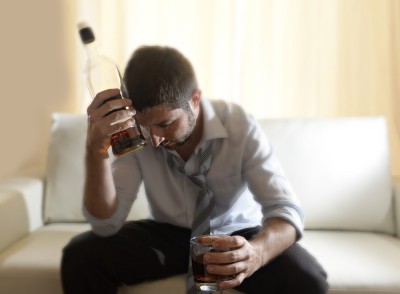Am I An Alcoholic? 12 Questions to Ask Yourself
For people who drink alcohol, it’s not always easy to tell when the habit has turned into a problem. Alcohol abuse and alcoholism can sneak up on you, so you must recognize the warning signs before they spin out of control. As you read through the following signs of alcoholism and alcohol abuse, be honest with yourself. After all, admitting the problem is the first step toward getting help.
To start, it’s important to understand the difference between alcoholism and alcohol abuse. Alcoholism involves all the elements of alcohol abuse coupled with physical dependence on alcohol. Both alcoholism and alcohol abuse lead to problems in the drinkers’ lives, but alcohol abusers generally can set some limits on their drinking. In both alcoholics and alcohol abusers, drinking is self-destructive and potentially very dangerous. Here are some questions to ask yourself if you’re wondering whether you are an alcoholic or problem drinker.
Do I have risk factors?
Alcoholism and alcohol abuse stem from a number of factors in a person’s life, including genetics, emotional health and social upbringing. People from certain ethnic backgrounds, such as Native Alaskans or American Indians, may be at an increased risk for alcohol abuse. Those with a family history of alcoholism are more likely to develop drinking problems themselves, as are those who have numerous friends who are heavy drinkers. People with mental health problems, such as depression, anxiety or bipolar disorder, are also at increased risk.
Is my drinking causing problems?
If your drinking is getting in the way of work, school or relationships, you may have a drinking problem. Examples include calling in sick to work, failing classes, neglecting your kids or family obligations, or skipping events because you are drunk or hungover. Alcoholics tend to take risks while drinking, such as driving or operating heavy machinery or engaging in unprotected sex. They may also experience problems with the law. Despite these warning signs and ill effects, alcoholics and abusers continue to drink.
Do I need to drink more than I used to?
Over time, alcoholics and problem drinkers build a tolerance to alcohol and require increasingly more than they once did to feel buzzed or relaxed. They can drink a lot more than most people without getting drunk.
Do I feel guilty after I drink?
If you feel regretful after drinking and worry about how your behavior affected others, it’s a red flag for alcoholism or alcohol abuse.
Do I need to drink in order to function?
Some alcoholics rely on alcohol to function. For example, they may need a few beers to get going in the morning or to loosen up before a big presentation and then continue to drink for the rest of the day.
Do I experience withdrawal symptoms if I don’t drink?
If you drink heavily, your body gets used to the alcohol and goes through withdrawal once you take it away. Withdrawal symptoms include shakiness, anxiety, depression, sweating, nausea and vomiting, irritability, loss of appetite, headache, insomnia and fatigue.
Do I need to drink in order to relax?
If you find yourself reaching for an alcoholic drink to self-soothe whenever you have a stressful day, you may have a problem with alcohol. Using alcohol as an emotional crutch is a risky habit, and it only provides temporary relief, causing worse problems in the long run.
Am I “hung up” on alcohol?
Alcoholics spend a lot of time drinking, thinking about drinking and recovering from the effects of drinking. They have few social interactions or interests that do not involve alcohol.
Do I black out when I drink?
“Blacking out” is when someone drinks so much he or she has no memory of what happened; it’s a huge red flag for alcoholism and alcohol abuse.
Do I often drink more than I planned to?
If you tell yourself you are not going to drink or only have one or two, yet you always drink to the point of intoxication, it’s a big warning sign. Alcoholics have trouble controlling how much they drink and for how long, despite the best intentions.
Do I lie to others (or myself) about how much I’m drinking?
Many alcoholics deny their drinking problems. They underestimate how much they drink and downplay the negative effects of their alcohol use. They also tend to blame others for their drinking and accuse family and friends of “making a mountain out of a mole hill.”
Are friends and family members concerned about my drinking?
If multiple people in your life have expressed apprehension about your drinking habits, chances are, there is indeed a cause for concern. If you repeatedly dismiss these worries, stop and think about why you are being so defensive.

